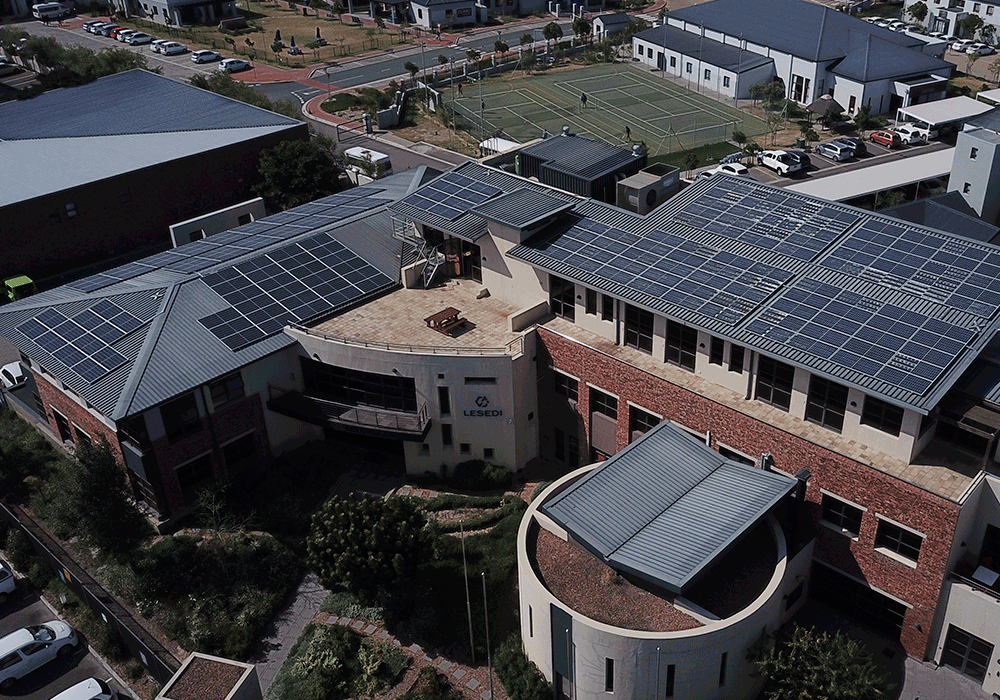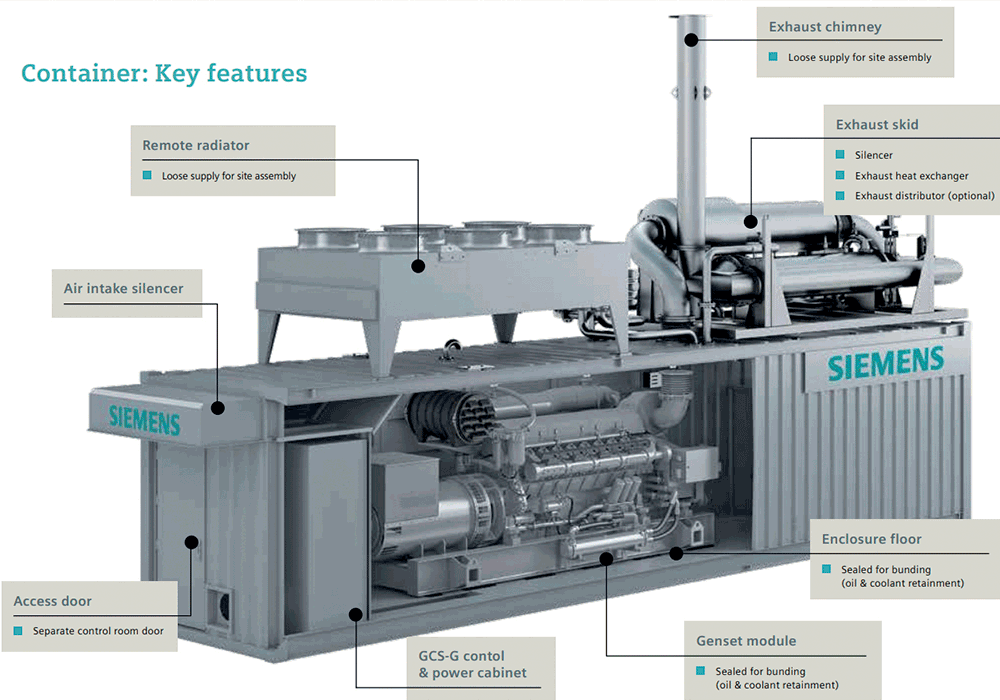Lesedi is a major engineering, procurement, construction (EPC) and maintenance company that has provided bespoke engineering solutions to industry for more than 30 years. The company distinguishes itself from its competitors by not only being able to supply equipment, but also to understand plant integration and design, and to engineer solutions to work seamlessly without disruption to clients’ equipment.
Over the years, Lesedi has successfully completed numerous key projects in the oil and gas, industrial power and mining environments. The company’s Gauteng office is dedicated to serving the mining sector and industrial clients, and Lesedi offers several customised solutions for the mining industry that are based on decarbonisation, lowering emissions and protection against Eskom tariff increases.
Decarbonisation is a worldwide trend, and Lesedi is playing its part to support industry with well-integrated, fit-for-purpose solutions for each customer’s needs. Its ability to use a multitude of technologies (gas turbines, engines, solar, wind, battery storage and so on) in various applications provides a total across-the-spectrum technology solution.
Being able to assist in proper project development services, Lesedi also builds financial models that take into consideration the capex as well as opex for a full life-cycle evaluation of projects, in line with industry requirements of good practice and governance. The company has access to funding options and IPP providers for any energy solution if the plant does not want to incur the capex expense at once.

CASE STUDY
Most recently, Lesedi prepared technical and commercial considerations for a combined heat and power (CHP) plant for a commercial entity that consumes on average 2.5 MW of electrical power, currently supplied by the City of Johannesburg. The site has access to natural gas supplied by Sasol that is used in their manufacturing processes. Lesedi partnered with Siemens for the design of the CHP plant, utilising Siemens gas engines to generate the required electrical power, while integrating the hot exhaust gases from the engines to supply heat towards the spray dryer used in the plant processes. The solution will result in the client being off the Eskom grid and able to supply its own electrical energy, with Eskom-supplied power as back-up only. Energy costs would be reduced, such that the plant would be paid off within three to four years from being in operation, with ongoing savings for the balance of its 20-plus years in operation.
The CHP design allows for a power-generation plant based on gas-reciprocating engines. The plant, which will be fuelled using piped natural gas, will generate approximately 25 000 MWh of electricity per annum (to be supplied to the facility), and will consume approximately 230 000 GJ of piped gas annually at the current electricity demand. The plant will allow the client to be completely self-sufficient in terms of electricity demand. The ‘waste’ heat produced by the hot-exhaust gas will be recovered and integrated into the SDA, thereby reducing the demand of from existing gas burners. The power plant will also guarantee that the client will not experience any load shedding, thereby protecting profits and ensuring sustainable, stable plant operation. A substation building will be erected, which will host all electrical switchgear and programmable logic controller (PLC) equipment for plant control. The building will also host a control room.
Meanwhile, the layout of the plant is optimised for space utilisation while considering the major components of the CHP plant. A civil requirement has been defined, based on industry standards and good practice, and the civil design includes all major elements. The mechanical design of the CHP plant allows for the required connections, pressure and flow within the plant. Major components and infrastructure have been specified, and general safety equipment – including a fire-detection system – has also been designed as part of the solution.
Furthermore, a PLC-system design has been included, which will control and monitor the balance-of-plant (BOP) equipment. All instrumentation required for the safe operation and control of the BOP has been specified as required.
Lesedi proposed to execute the project on a full EPC basis, within a lump-sum turnkey approach. It would therefore take on the full responsibility for the design and delivery of the CHP plant, and hand over a fully integrated, commissioned plant to the plant owner. A financial model was generated by Lesedi, which is based on the client’s specific input considerations. The model enabled a comparison between various scenarios, including one whereby the client remains on the existing Eskom-supplied electricity grid, and another in which they implement the plant and achieve the associated benefits.

VITAL STATS
Key facts
- The CHP plant is designed to offset gas usage from the SDA, thereby generating sufficient power to become independent from municipal electrical-power supply and, at the same time, integrate the heat from the power-generation activities into the SDA
- The EPC project execution for the establishment of the plant is approximately 12 months from project go-ahead
- A payback period for the plant is calculated at three to four years
- On completion, the gas usage in the SDA will be significantly reduced, as too will the net carbon footprint of the electricity generation (compared to the imported electricity generated via coal).
Technical details
- Generation power output capacity of 4.5 MW
- Utilises four Siemens SGE-56HM containerised gas engines that will generate power at 400V, 3-phase, 50 Hz and connect to the 6.6 kV site distribution network via step-up transformers and electrical equipment
- Exhaust-gas heat recovery will be achieved from the engines at 420°C, which is blown through a gas/gas heat exchanger.








